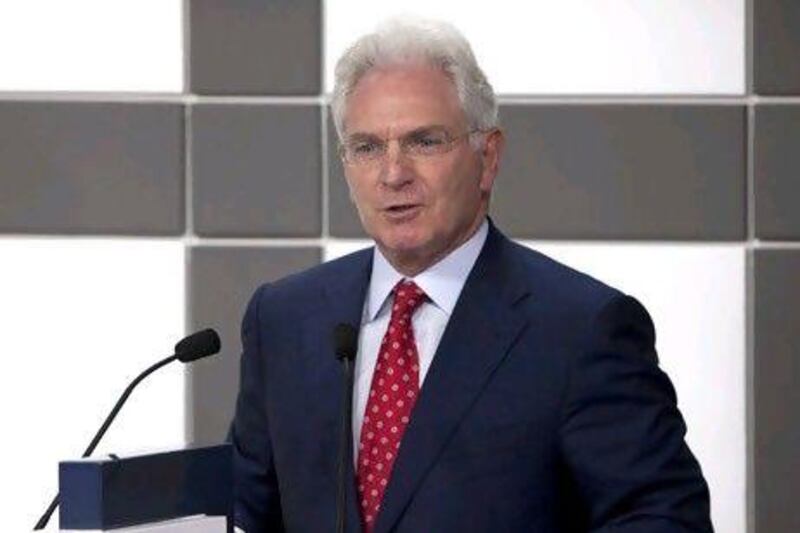JEDDAH // Saudi Arabia and other GCC states should consider creating a regional bank for reconstruction and development to help to rebuild regional economies suffering upheaval and inequality, says the chief economist of the Dubai International Financial Centre (DIFC).
Dr Nasser Saidi said such an effort, modelled after the US-led Marshall Plan that rebuilt Europe after the Second World War, may be needed as Bahrain, Egypt, Tunisia, Libya and other nations struggle with an uncertain future due to political instability.
"One of the things we may need to put on our agenda is a 'King Abdullah Plan'," Dr Saiditold the Jeddah Economic Forum, suggesting the fund be named after the leader of the region's top economic power, Saudi Arabia.
"Maybe a [Mena] bank for reconstruction and development. We should recognise there are big inequalities in our region. Morocco is a very poor country compared to the GCC, which is very rich. Maybe we need to think about reducing regional inequalities."
Saad al Ajmi, a former Kuwaiti minister, recently called for a US$100 billion (Dh367.29bn) fund to help Egypt's recovery.
Dr Saidi did not put a figure on how much money would be required for a fund that covers the broader region.
Saudi Arabia and other GCC states have already contributed to a $20bn economic aid package to Bahrain and Oman for infrastructure and housing projects. Both of those countries have been affected by unrest, with Bahrain especially hit hard by protests and mass strikes.
The kingdom has also taken steps to improve conditions within its own borders. Under two royal decrees announced in recent weeks, the Saudi king has unveiled spending increases totalling $129bn for social benefits.
But outside the kingdom, governments with smaller oil revenues are more constrained in their ability to spend. Bahrain, Tunisia, Egypt and Libya have all faced sovereign downgrades that are expected to be negative on foreign investment.
Professor Nouriel Roubini, a New York University economist, told the conference he believed financial assistance for affected countries should come from the broader international community, including the US, Europe, GCC states, the IMF and the World Bank.
But Prof Roubini said any external finance should be conditional on political and economic reforms.
"Apart from the political uncertainty there will be a lot of economic and social pressures as people in these countries are demanding higher wages and in the private sector they're striking," he said.
"If the pie is small and everyone is demanding a bigger share of it you could end up with a budget deficit, higher wages, inflation, a weaker fiscal position, and that undermines economic development."
The US, one of the biggest foreign donors to Egypt, last week assured the country's temporary military ruler of sustained American aid.
It already provides about $1.5bn a year, mostly in military aid.






